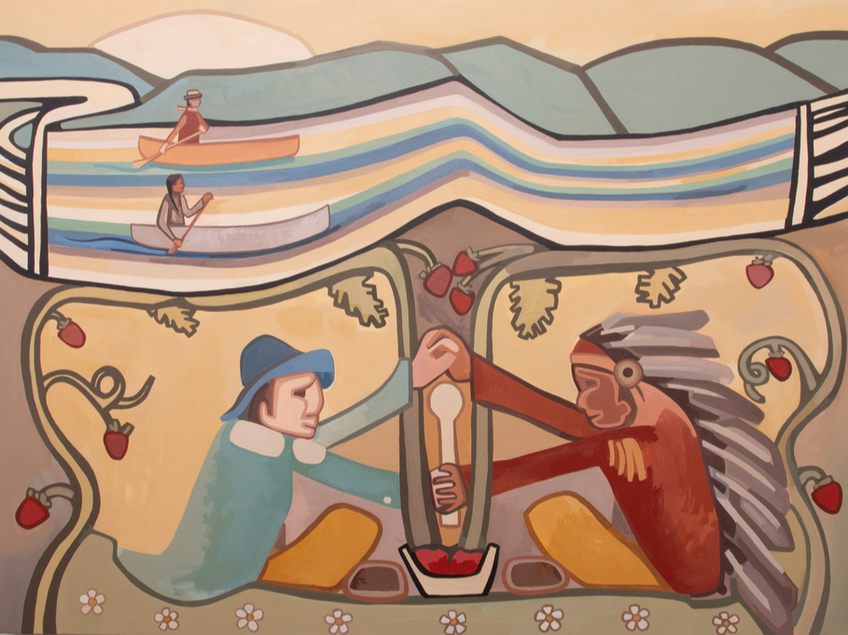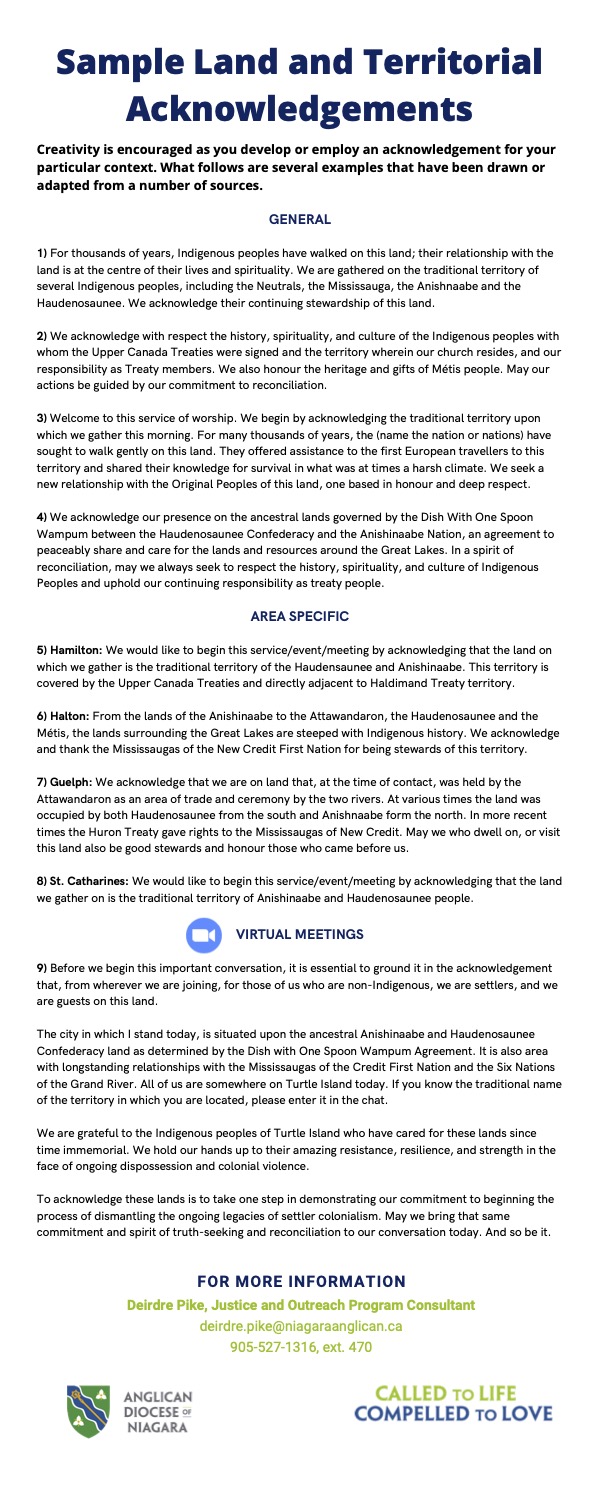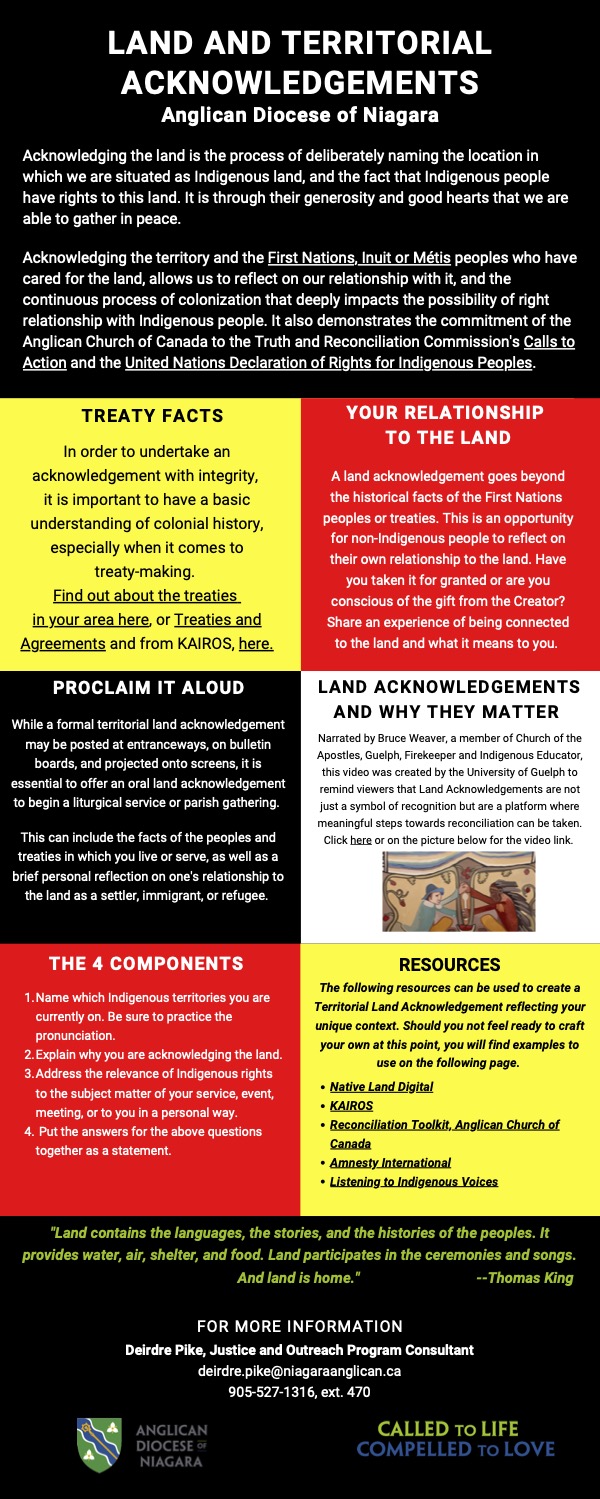In the midst of National Indigenous History Month last June, I bungled the land acknowledgement. It was the start of another online meeting, and I had the document open on my screen ready to recite—but when the moment came, the document disappeared and I was stuck.
Thankfully, most people just thought I was having an extended prayer time. But really, I was panicking as my eyes darted around my screen for the right button to click and bring back the words of the acknowledgement. It happened and all went on smoothly, but I was changed.
How could I be a justice leader if I didn’t take time to really know the land on which I stand in terms of its history and my own relationship, my own knowledge and love of the place where I live, work, play and pray? That was about to change.
That experience influenced the development of the newly released land and territorial acknowledgment tool for use across the Diocese of Niagara, and beyond. The land acknowledgement is not a moment to read a paragraph from the Encyclopædia Britannica, a historic recall, of sorts. It is a deep revealing of both the head and heart know-ledge of our reality as settlers and guests on this land, and our understanding of Canada’s relationship with First Nations, Métis, and Inuit people.
This new document is meant to guide you in the creation of a land and territorial acknowledgement that is living and fresh to the reality of the now; the meeting, the church service, the meal we are about to share, and how the extreme generosity of Indigenous people, who have cared for these lands long before we arrived, is connected to our opportunity to gather.
It takes some time to immerse oneself in the history and understanding of treaties that govern this land, like the Dish With One Spoon Wampum agreement, but it is worth it. You will find all you need in this new tool to create your own acknowledgement, but you will also find concrete examples of wordings to be recited until you are able to bring those words into your heart and say them aloud as if for the first time.
If you need any guidance in this endeavour, please reach out to Deirdre Pike, justice and outreach program consultant, at [email protected] or 905-527-1316, ext. 470. You can read about Deirdre’s own struggle to internalize the acknowledgement here.




Resurrection of Hope in Thundering Waters